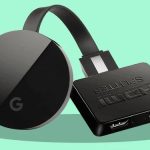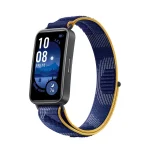Hello Guys! Today, I will discuss the difference between a browser and a search engine since many beginners confuse them with each other.
Search Engine and Web browser are two general terms that non-technical people use interchangeably. However, the two are different things. The only similarity is that both are internet software since they help us in web surfing.
We shall go through the definition and the difference between a search engine and a web browser.
Let’s discuss the Difference Between Browser and Search Engine.
Web Browser
It is a software/application that recovers and views the information from HTML files or webpages on the web servers. Since the browser translates the web page scripts HTML, CSS, and client-side JavaScript into human-readable languages, a browser works like a script interpreter.
Popular Examples
- Google Chrome
- Microsoft Edge
- Safari, Mozilla’s Firefox
- Opera.
Popular Web Browsers
Search Engine
It is a website (online tool) that helps people find information online. For this purpose, people insert the desired keyword into the search field. Hence, the search engine scans its index for the relevant web pages, displaying them as a search results page.
Since the internet is an immense source of information and resources, we always need various tools or software to reach these resources through the internet. For example, a search engine offers the correct information for a particular query asked, and a web browser provides easy access to the search engine.
Popular Examples
- Bing
- Yahoo
- Yandex
- Baidu
- Duck Duck Go.
What’s the Difference Between Browser and Search Engine?
| Sr. No. | Web Browser | Search Engine |
| 1. | A browser is an internet application software retrieves and displays web pages. We commonly use Google Chrome, Microsoft Edge, Safari, Mozilla’s Firefox, and Opera. | A Search Engine is an online software/tool (website) that helps users find content or web pages from websites. |
| 2. | A browser is an infrastructure. | A search engine is a service. |
| 3. | It is an application installed/present on your computer. | It is an online tool installed a thousand miles away on a system worldwide. |
| 4. | Users can install multiple web browsers on a single computer system. | Installing a search engine on the user’s system is not a need. |
| 5. | One can practice using a browser to access information or data on the internet. | A search engine points the user in the right direction of a website that links to the words entered by the user. |
| 6. | Web browsers are designed to present the web page of the current URL available at the server. | However, the search engine collects information regarding several URLs and sustains it. |
| 7. | A web browser employs a Graphical interface to assist users in experiencing an interactive online session on the World Wide Web. | A search engine possesses three main components: Search index, Crawler, and Search algorithm. |
| 8. | You can access/open a browser directly on your computer system or another device with a single click. | But a search engine can’t be accessed directly since you always require a web browser priorly installed on your PC to access a search engine’s homepage. |
| 9. | It does not need any database. However, it includes only cache memory to store cookies. | It comprises its database. |
I hope this distinction will help you understand the difference between the two, but some professionals speak loosely. Therefore, I do not feel much anxiety about it.
Cause of Confusion
- Confusion arises as a browser’s initial launch often displays a search engine’s homepage.
- Makes sense, as the primary browser use is to find and display web pages.
- Users access or surf the internet through a web browser.
- A search engine comes into play once the internet is accessed, allowing users to search for information.
- Implies the need to use a browser (e.g., Chrome or Firefox) to reach a search engine (e.g., Google, Bing, Yandex).
What distinguishes an Information Portal from a Search Engine?
A portal is a website that aggregates content from several other websites into one central location.
These sites often cater to a certain demographic or industry and provide a variety of content types including articles, news, and multimedia.
Adjustment and Customization:
Personal dashboards, news feeds, and subject subscriptions are just a few examples of the ways in which users may modify their experience on information portals.
Each user may tailor their experience on the site to their specific interests.
Customization and Personalization:
Most information portals offer more than simply a single place to check for various pieces of data.
They plan to develop a system that can do more functions in addition to simple data retrieval.
Clearly Structured User Interface:
- In order to facilitate easy navigation, many information portals employ a tabbed or otherwise sectioned layout for their content.
- Creating a consistent and well curated experience is the main goal.
Examples:
- Websites like Yahoo and MSN, as well as specialized portals that compile news and other content relevant to a given business, are examples of information portals.
Search Engine:
Search Engine:
- A search engine’s principal purpose is to index and retrieve information from the vast depths of the internet.
- Consumers can quickly and easily get the information they need thanks to algorithms that crawl and index websites.
Purposeless Research:
The best search engines put in a lot of effort to provide precise and pertinent results for each query.
The emphasis is on offering a vast number of results rather than delivering selected or personalized information.
Real-Time Information:
- Search engines are excellent at providing up-to-the-moment information because they are continually scanning new stuff on the web.
- Users get easy access to the most recent information.
Easy to Use Settings:
- A search engine’s user interface typically consists of a text box in which to type your query and a results list.
- The goal is to provide a straightforward path to the required information.
Examples:
The most well-known examples of search engines are Google, Bing, and Yahoo Search. These programs are designed to index and get data from the internet quickly and precisely based on user queries.
conclusion
In conclusion, both Information Portals and Search Engines play an important role in today’s digital ecology, while they do so in different ways.
A user’s experience may be adjusted with the use of information portals, which give curated material and supplemental services, in contrast to search engines, which place an emphasis on impartial indexing and quick retrieval of information from the vast expanse of the internet. I hope you like reading “Difference Between Browser and Search Engine.”











